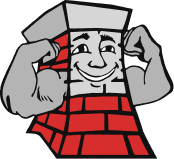How to Avoid Poisoning by Carbon Monoxide, the “Silent Killer”
 Carbon monoxide (CO) is a killer that claims the lives of more 500 people in the United States every year. Known as the “Silent Killer” because it is odorless and invisible, CO is the number one cause of poisoning fatalities. Fireplaces and other fuel-burning appliances are the leading sources for exposure to carbon monoxide. With the proper awareness and preventative action, CO poisoning is entirely preventable.
Carbon monoxide (CO) is a killer that claims the lives of more 500 people in the United States every year. Known as the “Silent Killer” because it is odorless and invisible, CO is the number one cause of poisoning fatalities. Fireplaces and other fuel-burning appliances are the leading sources for exposure to carbon monoxide. With the proper awareness and preventative action, CO poisoning is entirely preventable.
Carbon monoxide is produced when fuels such as wood, gas, charcoal, kerosene, and oil are burned. A fire which burns efficiently and which has proper ventilation up through a sound chimney does not typically release dangerous quantities of carbon monoxide into a home. But, for instance, if a faulty fuel-burning appliance such as a natural gas burner operates in an enclosed space which lacks good ventilation, dangerous amounts of carbon monoxide can be released and cause poisoning. High levels of CO can kill a person within minutes.
Sources of carbon monoxide:
• If a fire is burning in a fireplace which has an obstructed chimney, exposure to CO is possible due to an accumulation of combustion gases. A broken chimney connector pipe or a rusted heat exchanger can produce the same hazardous result.
• A reverse air flow in the chimney when a fire is burning in the fireplace can cause CO to enter the home. The reason the air goes back into the house instead of up the chimney is usually because the house is too tightly sealed and doesn’t allow the air to flow properly.
• Using a charcoal-burning barbeque grill indoors can cause dangerous levels of carbon monoxide.
• If you use a gas stove too long, perhaps to try and warm the room, it is very dangerous because it can cause carbon monoxide poisoning.
• CO can enter the home if a car idles or a lawnmower or generator runs in the garage.
While carbon monoxide is invisible and can’t be detected by smell, the following are possible clues that there is a CO problem in your home:
• Water streaking or rusting on your chimney or vent.
• Furnace panels which are missing or loose.
• A buildup of soot.
• Connections in the vent or chimney which are disconnected or loose.
• Loose masonry on the chimney.
• A decreasing supply of hot water.
Call emergency services if you suspect that you or someone in your home may be suffering from exposure to carbon monoxide. Also, immediately go outside or where there is plenty of ventilation. The following are common symptoms of carbon monoxide poisoning:
• Fatigue
• Headache
• Nausea
• Dizziness
• Vomiting
• Shortness of breath
• Disorientation
• Loss of consciousness
Tips for preventing carbon monoxide poisoning:
• Install at least one smoke alarm and a carbon monoxide alarm on each level of your home and near bedrooms. Make sure the alarms comply with local regulations regarding placement in the home and meet the latest Underwriters Laboratories (UL) safety standards.
• Always open dampers before using your fireplace.
• Do not use generators indoors.
• Space heaters should only be used in well-ventilated areas.
• At least once annually, hire a professional chimney sweep to clean and inspect your chimney.
Protect your family from the Silent Killer by taking preventative measures. Contact our chimney professionals for any questions or concerns that you may have about carbon monoxide poisoning. Our licensed professionals can also check your fuel-burning appliances to be sure that they are operating properly.
Northeastern Chimney, Inc
37 Cody Street, West Hartford, CT 06110
Phone: 860-233-5770


